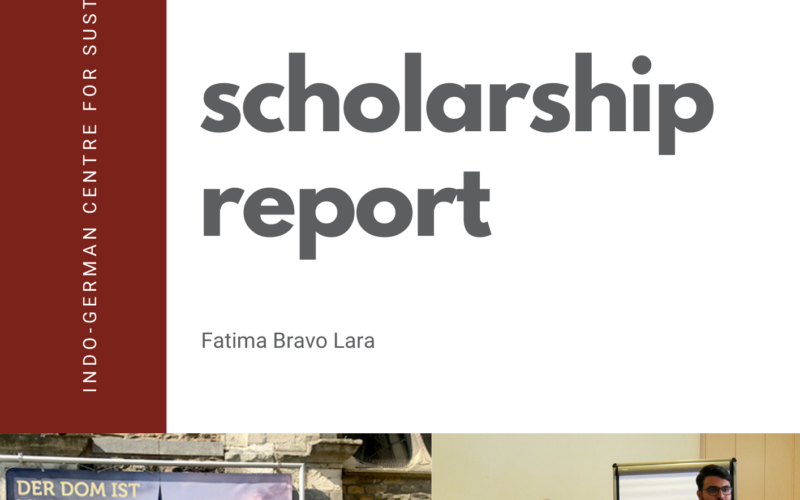The IGCS actively contributes to the exchange of knowledge by facilitating collaboration between students and researchers, aiming to generate innovative solutions for sustainability. It is a research hub dedicated to addressing pressing sustainability challenges through interdisciplinary collaboration. Research is one of the core pillars of IGCS and is reflected in a wide array of our activities and events. The centre’s research involves collaborations with various esteemed institutions across Germany and India.
Today, we are excited to present a research brief from our alumni, offering insights into the key areas where our efforts are focused.
Fatima Bravo Lara was our exchange student who had their exchange period between 25. December 2023 until 05. March 2024 at the Department of Electrical Engineering at Indian Institute of Technology, Madras, Chennai, India under Prof. Dr. Krishna Vasudevan. Their home institution is the Department of energy process engineering and conversion technologies of regenerative energies at Technische Universität Berlin, Germany under Prof. Dr. Frank Behrendt. Their research was on the topic of ‘Air Conditioner Energy Efficiency within the New Academic Complex at IIT Madras.’
The research focuses on improving the energy efficiency of the air conditioning system at the New Academic Complex (NAC) at IIT Madras, as part of India’s energy transition and carbon neutrality efforts. A collaborative study between IIT Madras and TU Berlin assessed the current state of the HVAC infrastructure at NAC, identifying challenges, such as ineffective temperature control, inefficiencies during low occupancy, and structural issues related to condensation.
The research methodology involved visual inspections, surveys, and data analysis. Findings revealed issues like excessive cooling at night, interrelated temperature changes between rooms, and energy consumption remaining high despite low occupancy. The study proposed several recommendations: implementing energy-saving measures, optimizing nighttime HVAC operations, and upgrading equipment for efficiency. A cost-benefit analysis was also suggested to prioritize energy-saving initiatives.
In conclusion, while NAC has made strides in energy optimization, further improvements in HVAC infrastructure and operation could enhance energy efficiency, reduce emissions, and support IIT Madras’s sustainability goals.

